#i. 「 marley. 」
Text

#sippihippie#personal#girls of tumblr#hippie#420photography#girls who smoke weed#heart#heart shaped#love#420girl#look like Barbie smoke like Marley#naturecore#i love you#weed#weed art#sexy smoker#weed pictures#weed aesthetic#420buds#bob marley#green aesthetic#greenery#rasta love#photography#herbal#cannabis#flowers#flowercore#my heart#pothead
2K notes
·
View notes
Text
Drag Eddie!!

(featuring my welcome home oc, Marley!)
Playing dress up!!
🎀🪞🎀
#Gah!! I need to post Marley on here!!#I’ll get to it at some point!!#swear on my life!!#still figuring her out!#she’s a photographer :)#anyway I LOVE THE SPARKLY DRESS#IT WAS SO FUN#I wanted to draw him in drag for awhile now so it’s good I got to it!#Marley Mellow#welcome home oc#welcome home#welcome home fanwork#welcomehome#welcome home arg#eddie dear#wh eddie#welcome home fanart#welcome home eddie
820 notes
·
View notes
Text
youtube
Watch the 2024 American Climate Leadership Awards for High School Students now: https://youtu.be/5C-bb9PoRLc
The recording is now available on ecoAmerica's YouTube channel for viewers to be inspired by student climate leaders! Join Aishah-Nyeta Brown & Jerome Foster II and be inspired by student climate leaders as we recognize the High School Student finalists. Watch now to find out which student received the $25,000 grand prize and top recognition!
#ACLA24#ACLA24HighSchoolStudents#youtube#youtube video#climate leaders#climate solutions#climate action#climate and environment#climate#climate change#climate and health#climate blog#climate justice#climate news#weather and climate#environmental news#environment#environmental awareness#environment and health#environmental#environmental issues#environmental education#environmental justice#environmental protection#environmental health#high school students#high school#youth#youth of america#school
16K notes
·
View notes
Text
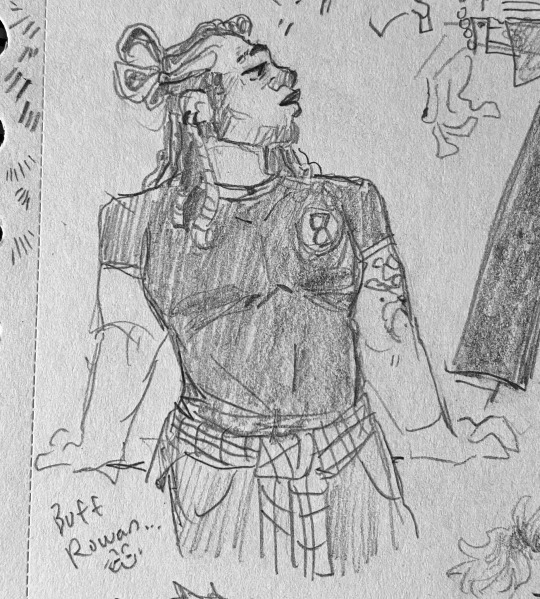
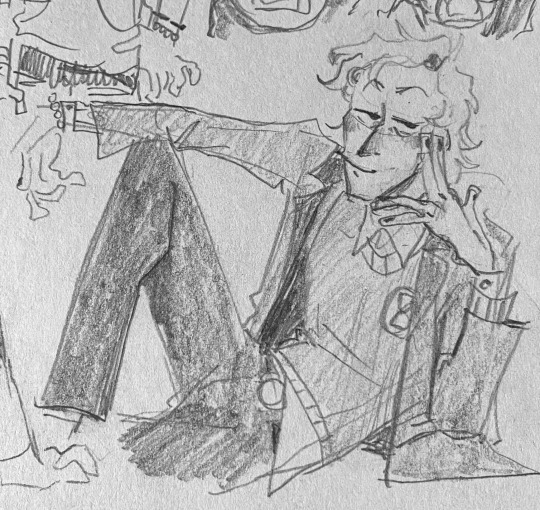

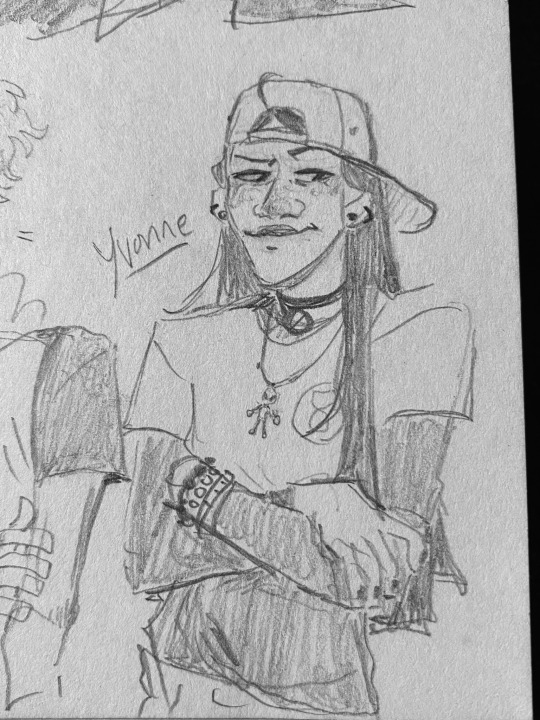
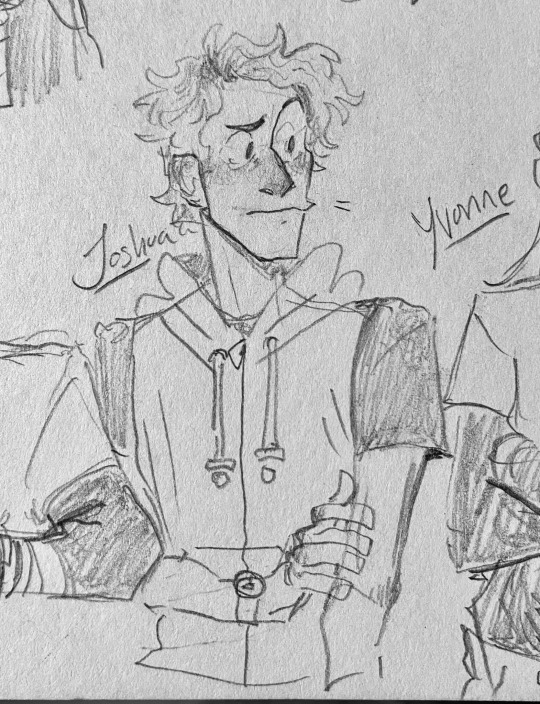
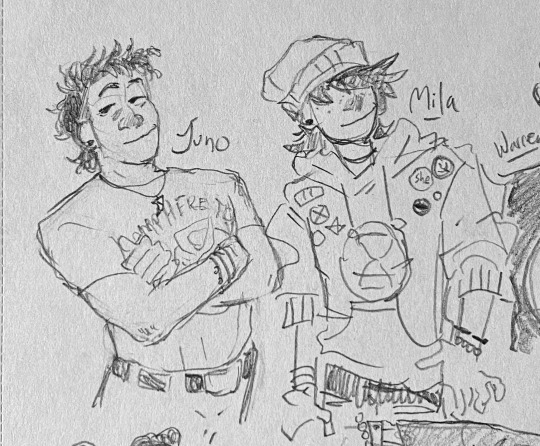


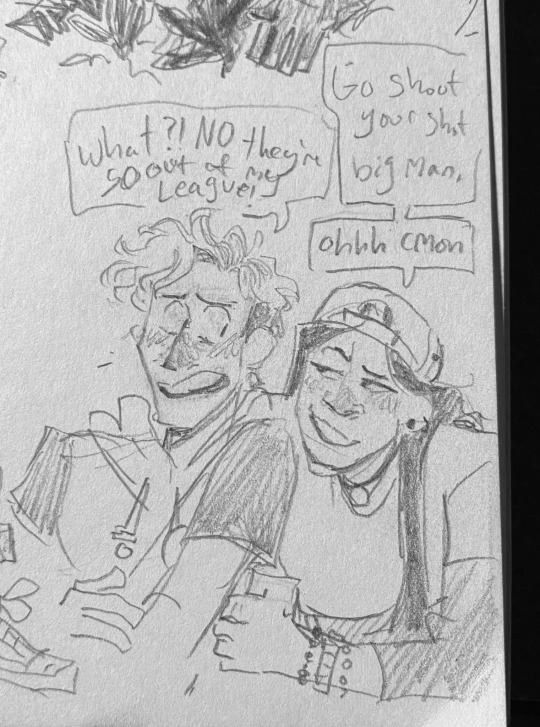

camp counselor designsss it’s official I’m a Joshua stan justice for Joshua
#I think Joshua and Fennel should be together I think they’d treat him right#also….. my Yvonne design….. very inaccurate but I can’t picture her any other way oops#camp here and there#camp here & there#chnt#ch&t#chnt fanart#ch&t fanart#rowan chow#juniper sloan#soren baltimore#yvonne marley#joshua macheath#juno matsouka#mila alcorn#warren earthman#gracie liu#fennel marlborough
429 notes
·
View notes
Text
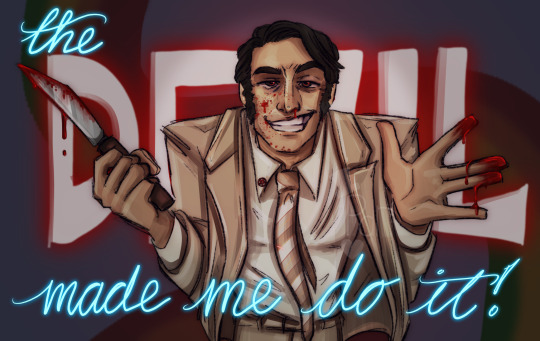
i really enjoyed this movie
#late night with the devil#brainrot is a disease to which i have no cure#not a spoiler#marley draws ☆
400 notes
·
View notes
Text
the topic is Trapper and the army as foils, you have three hours, go
In no small part the satire of Mash, particularly in the first half of the show, is tied up with gender performance.
The army represents traditional, stifling and violent masculinity. This is shown through everything from freudian jokes about guns (eg Frank and Margaret's flirtations in The Sniper or The Gun), to Margaret trying to cajole Hawkeye into performing a more traditional standard of masculinity while treating him like a soldier in Comrades in Arms Part 2, to many jokes and comments about (usually) Hawkeye not being a real man in contrast to army standards and various specific army personnel (eg Lyle in Springtime, Flagg in White Gold), to Frank and Margaret's worship of the masculinity of the army ("He's twice the man you'll ever be," re: Flagg and Hawkeye, Margaret's lust for MacArthur, Frank pursuing the sniper in The Sniper in an attempt to be a "real man" in Margaret's eyes, etc) to many jokes positioning the military as a sexually aggressive man pursuing Hawkeye ("Sure, the sun the moon the stars, your high school letterman jacket. Same deal I promised nurse Baker." "A receipt please, and promise you'll go out with other doctors," etc.)
In contrast, the main characters all fail to perform traditional gender in some way, from crossdressing to immaturity to indecisiveness to peacefulness to Margaret's masculinity and Frank's pathetic failure to live up to his own masculine ideals, to just about everything about Hawkeye. His cowardliness, his jokes about not being a real man, his jokes about taking the feminine role in sexual encounters with men and women, even multiple double entendres about his average at best penis size.
Trapper is the most traditionally masculine of the main cast. He still subverts masculinity in some subtle ways here and there, such as the occasional feminizing joke and mentions of not being in great shape, but overall he's the more butch counterpart to Hawkeye's fem. He plays the role of boxer while Hawkeye plays the role of diva in their respective manager/star roleplaying episodes. He's broader and buffer and plays football, often seen playing catch with someone while walking around the compound, while Hawkeye disdains sports and doesn't participate. He reads Field and Stream which Hawkeye derides in Alcoholics Unanimous while making a wry comment about shaving his armpits. A past lover nicknamed him Big John.
And there are many, many jokes about Hawkeye and Trapper being sexual partners. The recurring Uncle Trapper and Aunt Hawkeye gag, if my father sees this you'll have to marry me, for me? only if you put those on, your father and I will tell you what we did to have you, that's when I fell in love with him, etc etc etc. It's constant. In these jokes Hawkeye usually takes the feminine role, though not strictly every time ("Me and the missus," is one exception in As You Were, the dance in Yankee Doodle Doctor is another).
Trapper's masculinity is differentiated from traditional military masculinity in a few ways. Most obviously, Trapper abhors the military's violence. He never uses guns and mocks Frank's obsession with them, he's a healer rather than a soldier, and he's disgusted by the results of military violence on the men on his operating table.
He's also secure in himself. The military's brand of masculinity is strongly characterized by insecurity and overcompensation. Frank is the main representative of this military insecurity - a coward who insists he's brave (The Army Navy Game), a man who clings to a phallic gun to compensate for his sexual and gendered inadequacies (a main theme of The Sniper, perfectly mirrored when the army itself comes in with a vastly disproprotionately powerful automatic machine gun on a helicopter to shoot down one sixteen year old), a homophobe repressing his own attraction to men (As You Were, the original script of George), etc. We also see this in Flagg, who implicitly sublimates sexual urges into violence (seen when he suggestively caresses his gun while describing how he wants to torture a boy in Officer of the Day).
Trapper doesn't need to overcompensate. He's well-endowed physically, he's portrayed as a competent and considerate lover, he's a brave man who doesn't mind being seen as a coward, and he may or may not be attracted to men but either way he's not a homophobe (George) and he doesn't express his sexuality through violence. When Margaret proves herself stronger than him, his response is to be impressed rather than offended (Bombed). When he dances with Hawkeye for a gag, he doesn't mind letting Hawkeye lead.
He's also differentiated in terms of tradition, with the mliitary representing a more propagandic 50s traditionalism, and Trapper representing a 70s, countercultural freedom from tradition. We see this in the way Trapper has plenty of sex despite being married, while adultery is a court-martial offense in the military. It's notable that he's open and carefree about it, while Frank and Margaret are surreptitious and hypocritical in their affair. This lack of traditionalism is also shown in his disrespect for authority, often in direct contrast to Frank and Margaret's worship of it, and his allyship to George who the military would persecute for his sexuality.
So ultimately we can see that while Trapper and the military are both examples of masculine performance, Trapper's masculinity differs from the military's in being more flexible, less violent, less traditional, and more secure. The military's masculinity is far more toxic than Trapper's, particularly in the context of 70s counterculture media, which aligns womanizing with sexual liberation rather than a lack of respect for women, accurately or not.
This contributes to their respective dynamics with Hawkeye.
Hawkeye, we've established, is usually more feminine, and there are a myriad of jokes characterizing Trapper as his sexual partner, as well as the military as a sexual pursuer.
The jokes Hawkeye and Trapper make about their relationship tend towards cozy domesticity. They're Radar's "aunt and uncle," they directly roleplay marriage ("Martha, we're going to have to move, the people upstairs are impossible,") and less directly behave as though married (the bickering in Alcoholics Unanimous, the discussion about naming their pony in Life With Father). Occasionally they're treated as a healthy couple in contrast to Frank and Margaret's toxicity ("While I'm gone, promise you'll go out with other doctors," vs "Touch anyone else and I'll cut off your hands" in Aid Station).
In some instances the jokes lean towards predatory - "If you're trying to get me drunk, it'll work," or "Who is this man in bed with me?" "I followed you home from the movies," but they're always playful, always fond. If Hawkeye takes on a submissive or victimized role in these jokes, it's one he has fun with and discards just as easily in the context of the rest of his relationship with Trapper.
So, it's important to note that Hawkeye and Trapper support each other and look after each other in an equal, enthusiastic friendship. From Trapper ensuring Hawkeye gets to sleep in Doctor Pierce and Mr. Hyde, to Hawkeye supporting Trapper when he wants to adopt a child, to Trapper right at Hawkeye's side as they attempt to procure an incubator, they are there for each other every step of the way. If their relationship is a marriage in some ways, it's a healthy, strong, and non-traditional marriage, an equal and open partnership free of jealousy and insecurities.
Compare that to the military's relationship with Hawkeye. In jokes it's characterized as powerful and predatory, far from an equal partnership. Sometimes it approaches positive - in Carry on Hawkeye, much of the humour is derived from Hawkeye and Margaret's gendered role reversal as she assumes military command of the unit. Hawkeye playfully calls her sir, seductively lies on her desk like a secretary in a porn film, and most notably treats an immunization shot as sexual penetration in a prolonged gag about sexual role reversal. Hawkeye has fun playing a sexually submissive role to a representative of military authority in this episode, but it is a submissive role.
Several of the one-off jokes have a similar sensibility, such as the double entendre of "My bellybutton's been puckering and unpuckering all day," in response to a representative of MacArthur assuming their excitement over the general's arrival to the unit, or Hawkeye's "Okay, take me, I'm yours," to Colonel Flagg. They demonstrate a willingness to play the receptive role on Hawkeye's part, but they also, pointedly, disturb the object of the jokes.
When Hawkeye makes these jokes that sexualize military authority, he's attempting to be provocative as well as defiantly drawing disruptive attention to his own powerlessness as a drafted surgeon. The power dynamic between Hawkeye and the authority of the military only goes one way, and Hawkeye gets a kick out of pointing it out in ways that perturb the representatives of that authority, but it's a power dynamic that takes its toll on him.
Many of Mash's plotlines revolve around Hawkeye rebelling and attempting to seize some scrap of agency back from the military. Adam's Ribs, for example, in which he starts a mild riot over the food he's being fed and spends the episode attempting to procure barbecue ribs from Chicago (which Trapper procures for him), or Back Pay where he tries to charge the military for his forced labour. A particularly notable example is Some 38th Parallels, in which Hawkeye complains about being paid the equivalent of a nickel per operation, and his frustration manifests in impotency until he can perform a gesture of rebellion against the military.
One unfortunate consistency of these episodes is that the army ultimately retains its power. When Hawkeye achieves his goals, it's only in small ways that do little more than satisfy his own need to assert his sense of self. Often, Hawkeye doesn't achieve his goal at all, but is thwarted by the army, such as in For Want of a Boot. In every instance he remains powerless in comparison to the authority of the military.
So the context in which Hawkeye makes these sexualized jokes about the military literally fucking him is one of abject helplessness. In a sense, all he's capable of is pointing out what the military is doing and putting it in his own, audacious terms. He's not capable of preventing it. His jokes usually have an edge of bitterness to them in delivery, and when they don't, that tone is imparted anyway by the greater context.
With Trapper, Hawkeye can play-act a marriage or an assault, but in either case he's an enthusiastically consenting, equal partner. Trapper's performance of masculinity allows for Hawkeye to take any role from victim to wife to husband, and enables Trapper to respond in kind from a position of equality and respect. The military, in its insecure, domineering performance of masculinity, is a dictatorial authority, never allowing Hawkeye perform any role but a feminized, victimized one, and only ever giving him the choice of whether to perform with a wry smile or a sneer.
In short, Trapper is the cool, considerate service top to the military's insecure domineering boyfriend.
I'm tagging everyone who enabled this lol, share the blame. @beansterpie @majorbaby @professormcguire @rescue-ram
#mash#this was dumb but writing it was somehow cathartic for me lol#i should've done this with frank and hawkeye as foils wrt subverting masculinity bc i think that would've been much easier#but i got caught up in this honestly. it's incredibly fun to write this kind of shit#maybe i'll post a round 2 sometime#marley on mash#ship ht#mash gs#and like... it's a little bit parodic but also sincere to an extent lol. this is absolutely one way of reading all the freudian#undercurrents in the show. it's definitely silly to contrast trapper and the military to make a point about how the show depicts#masculinity especially for like 1800 words lmao but it's a very fun angle#trapper mash#hawkeye mash#long post
346 notes
·
View notes
Text
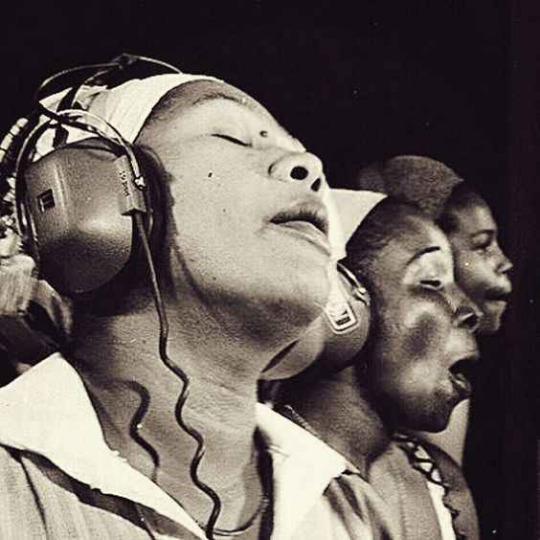
The I Threes
Marcia Griffith, Nana Rita Marley, Judy Mowatt. Recording in Kingston, Jamaica. 1980
Photo: Lindsay Oliver Donald
209 notes
·
View notes
Text
youtube
Watch the American Climate Leadership Awards 2024 now: https://youtu.be/bWiW4Rp8vF0?feature=shared
The American Climate Leadership Awards 2024 broadcast recording is now available on ecoAmerica's YouTube channel for viewers to be inspired by active climate leaders. Watch to find out which finalist received the $50,000 grand prize! Hosted by Vanessa Hauc and featuring Bill McKibben and Katharine Hayhoe!
#ACLA24#ACLA24Leaders#youtube#youtube video#climate leaders#climate solutions#climate action#climate and environment#climate#climate change#climate and health#climate blog#climate justice#climate news#weather and climate#environmental news#environment#environmental awareness#environment and health#environmental#environmental issues#environmental justice#environment protection#environmental health#Youtube
16K notes
·
View notes
Text
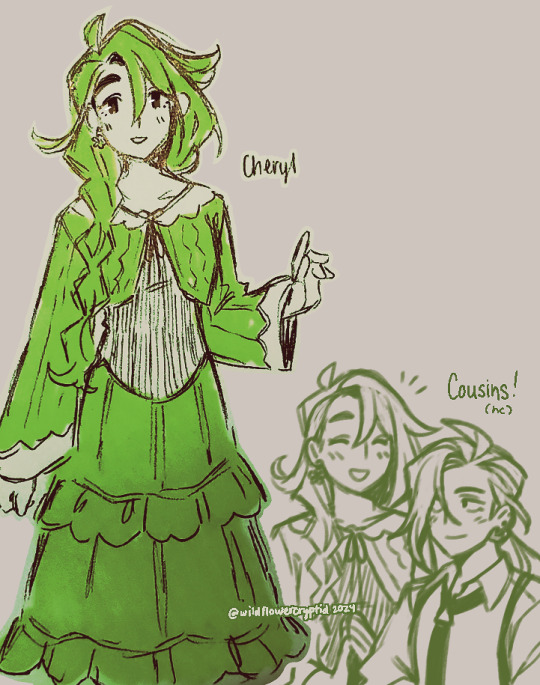
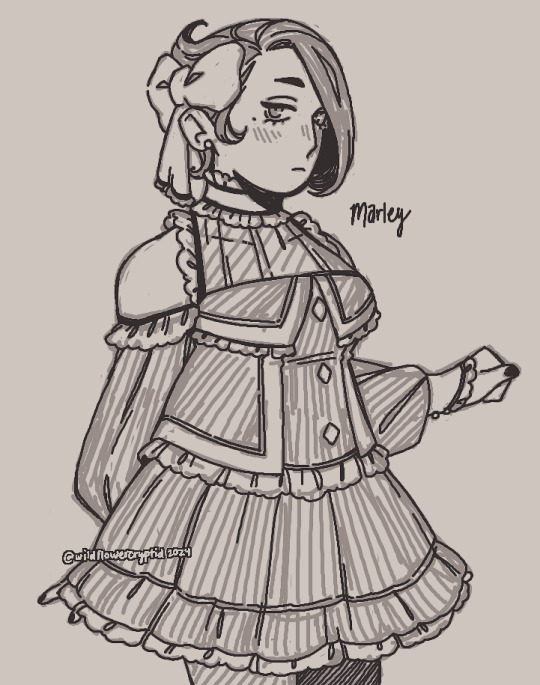
felt like doodling some sinnoh redesigns today! ( i sketched the cheryl one on a notepad at work. )
#cheryl and rika are the green lesbian cousins of all time#they're on different ends of the butch femme spectrum. also both trans.#trust me my dad is mr. gamefreak himself#heading to bed now bc i got work in the morning aaa#pokemon#pokemon diamond and pearl#pokemon platinum#pokemon dppt#pkmn dppt#pokemon cheryl#stat trainer cheryl#pokemon marley#stat trainer marley#pokemon redesigns#character redesign#character design#🎨 : mj draws
156 notes
·
View notes
Text
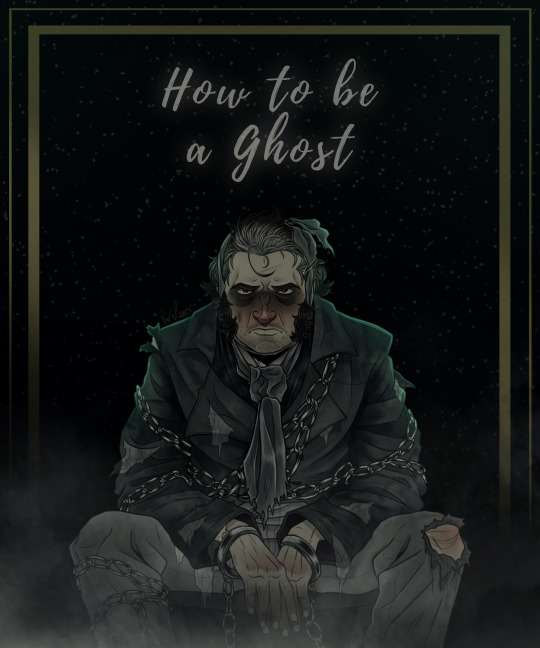
Hope I did the song justice ❄️👻 You should definitely listen
#shipwrecked#shipwrecked comedy#how to be a ghost#christmas carol#jacob marley#sean persaud#hope it doesn't look rushed lol#or like a downgrade from my usual stuff D:#my body still can't decide if I'm sick or not which is funny cause last christmas I was super ill as well#killed by rose flavored cider#my art#art#art post#digital#digital art#fan art#fanart#sketch#drawing#christmas#holidays
249 notes
·
View notes
Text

you’re in for one crazy night just to prepare ya.
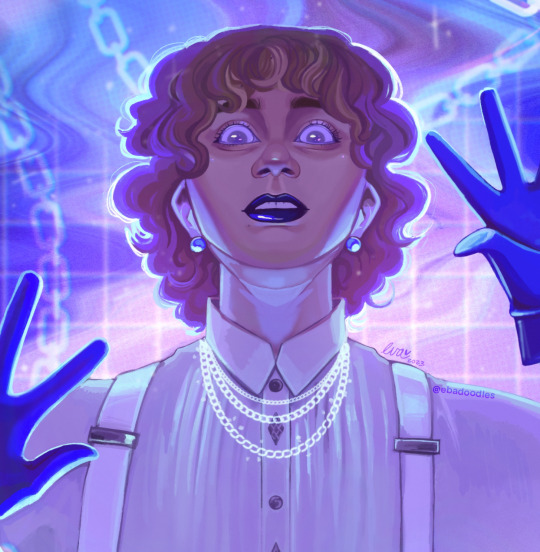
#i’m really fuckin proud of this one#meredith is so gender in this part#personally i think theatre should make more gnc casting decisions#for my sake#eeevart#digital art#vhscc#vhsccs#vhs christmas carol#vhs christmas carols#meredith stepien#scrooge remember marley your old partner and friend
388 notes
·
View notes
Text

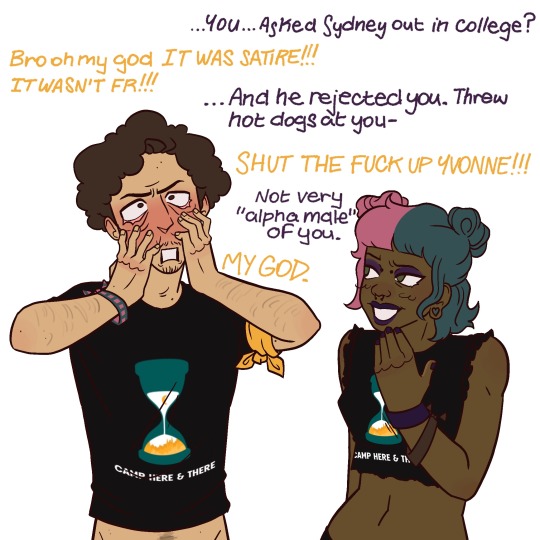
Posting again. I will cherish Joshua's hot dog incident in my heart till the day I die
#he cried#like it was bad#really bad#he picked up those hot dogs in shame#art#artists on tumblr#will wood#camp here and there#chnt fanart#chnt#joshua macheath#yvonne marley#sydney sargent#jedidiah martin#whats the name of the ship for jeddie and syd#sydidiah#???? i guess
629 notes
·
View notes
Text
youtube
Watch the American Climate Leadership Awards 2024 now: https://youtu.be/bWiW4Rp8vF0?feature=shared
The American Climate Leadership Awards 2024 broadcast recording is now available on ecoAmerica's YouTube channel for viewers to be inspired by active climate leaders. Watch to find out which finalist received the $50,000 grand prize! Hosted by Vanessa Hauc and featuring Bill McKibben and Katharine Hayhoe!
#ACLA24#ACLA24Leaders#youtube#youtube video#climate leaders#climate solutions#climate action#climate and environment#climate#climate change#climate and health#climate blog#climate justice#climate news#weather and climate#environmental news#environment#environmental awareness#environment and health#environmental#environmental issues#environmental justice#environment protection#environmental health#Youtube
16K notes
·
View notes
Text
What was the point of Scrooge's trip with the Ghost of Christmas Yet to Come? On a structural level, it makes sense--three is the fairy tale number, and you can't visit the past and present without also including the future--but on a character level, it doesn't quite seem necessary. Showing a man that he'll die alone, unloved, and unmourned seems like the strategy you take as the last-ditch effort to convince a guy that he needs to change his ways. But that situation doesn't apply to Scrooge. He started softening immediately after he first arrived in his past. By the time he finished with the Ghost of Christmas Present, he was fully onboard with the need to reform, so the Ghost's vision of his future seems like unnecessary cruelty. Why show him all this when he was already planning to change his ways?
A few things come to mind. One is that this vision of the future wouldn't have affected Scrooge unless he had already changed his ways. A cold, hard businessman could have seen his lonely death as just the way of the world, might have viewed the people who stole the clothes from his corpse as just people doing what's practical in this world. He needed to relearn the value of the intangibles--human connection, respect for others--to see the true horror of the lonely death and the vultures who defiled the dead man.
But why the horror? Can't he reform without being threatened with doom? It's possible--but it's also possible such a reform would be temporary. After all, Scrooge started as a friendly, loving young man, but retreated into himself and his business out of fear of poverty and fear of the way the world looks down upon poor people. Even if a reformed Scrooge started on a course of Christmas charity, there was always a chance that the enthusiasm would fade, and the worldly fears would start creeping back in. The only way to beat those fears is to give him something to fear that's even worse than poverty. He needs to see the horrible end that his selfish ways would lead to, so he won't be tempted to slide back into them.
There's also the fact that seeing his death makes him ecstatically happy to find that he's alive after the Ghost is gone. Had Scrooge been spared the vision of his future, he might have been happy to find himself on Christmas Day, but his joy would have been nowhere near the manic glee he experiences after coming back from the future. Now, he doesn't just get a new start--he gets a second chance. Coming back from his own grave makes him mindful of his death, but it also makes him hyperaware of the fact that he's still alive. He isn't in the ground yet. He still has time to do good and make connections with others so he doesn't die alone.
Seeing the past reminded him of the innocence he'd lost. Seeing the present reminded him of the people whose lives he was missing out on. Seeing the future reminded him that death is waiting, so it's important to live virtuously while we can. All three are important because all three brought him outside of himself and taught him to value the wider world, just in time to live through another Christmas Day.
#a christmas carol#charles dickens#once again i've ponderously worked my way to the explicitly stated moral of the story#but i had to work my way there because stave 4 left me unsettled#had i been scrooge that trip probably would have squashed any desire i had to reform#the ghost *doesn't say* whether or not the future can be changed#what if this is just proof he's doomed no matter what so why bother changing?#fortunately scrooge was much better than i was about logic#namely: no reason to show him this future if it *can't* be changed#the point of these ghosts is to save him from marley's fate#plus we did have the ghost of christmas present's implications that future shadows can be changed#it's kind of interesting when you step back from familiar stories that just go this way because it's how they're supposed to go#and really dig into 'wait a minute. why did it go like this?'#it usually winds up with me figuring out that the writer knew what they were doing#but it's also nice to see the scaffolding that got us to the story
175 notes
·
View notes
Text
glee textposts
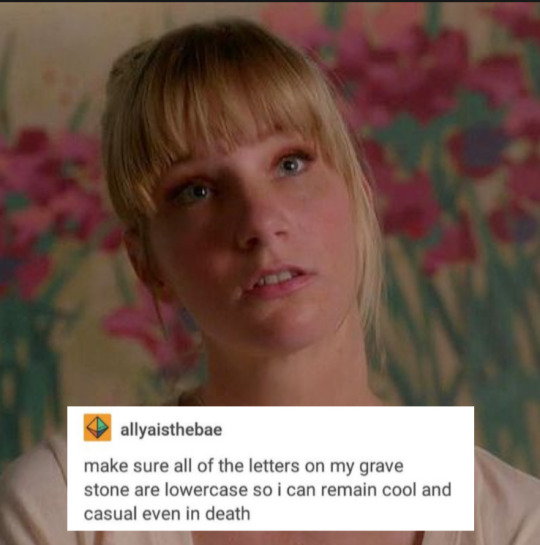
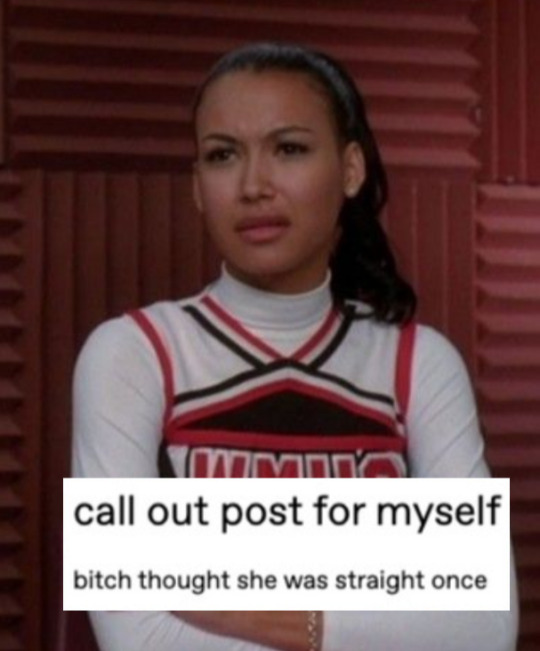
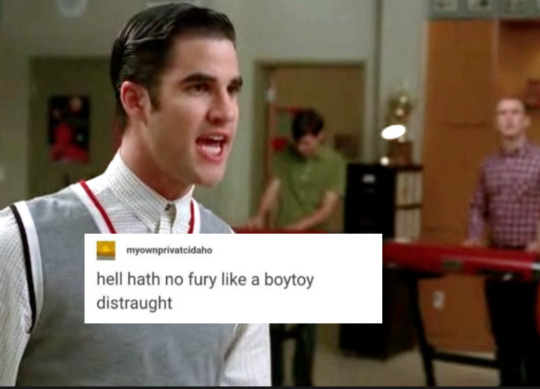




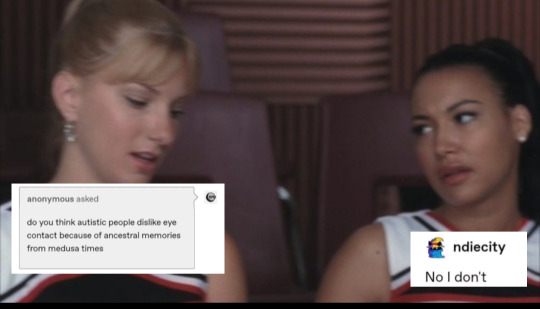


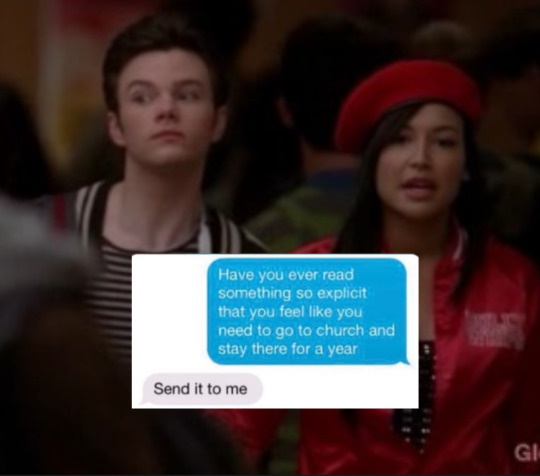
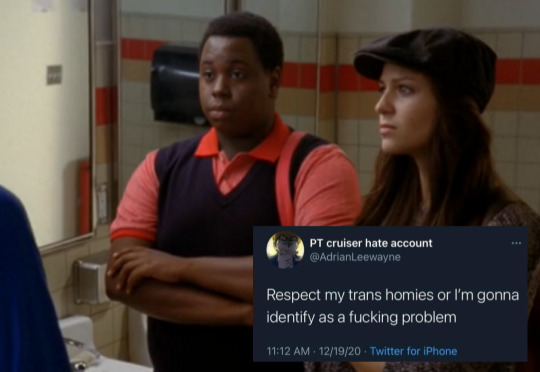
#this isn't my usual content but I'm rewatching glee so#glee#glee textposts#glee incorrect quotes#incorrect quotes#brittany s pierce#santana lopez#sam evans#blaine anderson#mercedes jones#kurt hummel#finn hudson#marley rose#unique adams#sebastian smythe#blam#brittana#marlique#platonic or romantic you decide#I'm sorry for the quality I did my best :(
302 notes
·
View notes
Text
COLLAB POST!! COLLAB POST!!!
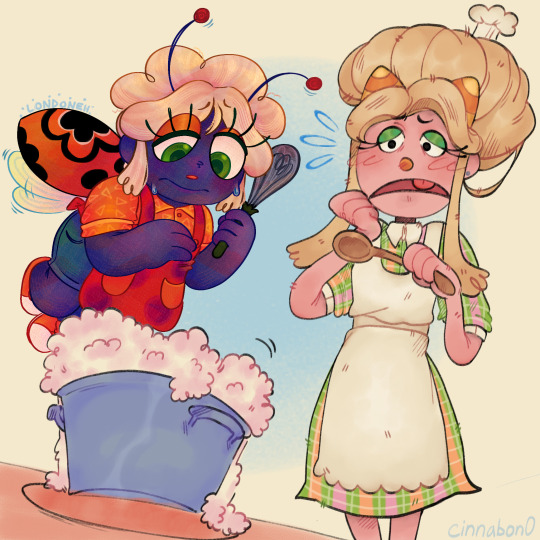
When I saw this I squealed. I HAD TOO!!
Collab with @cinnabon0’s post!
🌸 🍬 🌸
#with my oc!!!!#LOOK AT THEMMM 💖💖#this was so fun!!!#I haven’t made a reference sheet or anything for her yet 😃#i’ll do it eventually#cinnabon0#marley mellow#welcome home oc#welcome home#welcome home arg#welcome home puppet show#welcome home fanwork#welcome home fanart#julie joyful#welcome home julie#wh julie#wh oc#collab post#collab art#my dandy doodles!
146 notes
·
View notes
Text
“You promised you’d never leave me..”
The words were quiet, your cheeks flushed as tears rolled down them, your body wanting nothing but to yield to the man inside of you; your mind wanting nothing but to push him away, to reprimand him, yell at him for leaving you.
Soft lips trailed hurried kisses across your face and down your neck, Eren desperately trying to make up for his fault, to heal the emotional turmoil he inflicted on your heart. “I know..” his voice was heavy with regret, eyebrows knitted as he let his body do the talking, soft thrusts reinforcing the feeling of love despite your obvious anguish.
“You promised me, Ren,” your voice broke, eyes glassy and full of unshed tears, your hands coming up to hold his face, to make him look at you, to look at what he’d done.
“I’m sorry.. I’m so sorry,” Eren choked out, green eyes reflecting yours with his own batch of tears, eyelids squeezing shut as he burrowed into your neck. He continued to rock into you, your bodies entangled into an ironic hold, your broken heart weaving itself back together with every word spoken by him.
Sadness filled the bedroom as you both yielded your most vulnerable emotions, shared sorrow and guilt seeping from your movements. But relief was also present, the fact that you were both safe and back together written by your arms clinging to each other, tear-coated lips twining together in ushered kisses, your legs cradling his hips as he pushed into you, his form completely enveloping your own in a tight, hug-like hold.
Both of your bodies were flushed from exertion, muffled cries turning into heavy breaths. “I love you-” he whispered, leaving a gentle kiss to your forehead, “-I love you. I love you. I love you.” With every word another kiss followed, to your cheeks, your nose, and finally your mouth.
His tan skin glowed in the setting sunlight, the bed sheets strewn about, your bodies entangled in a loving lock, hushed words of reassurance flowing from his mouth as he replaced your sadness with pleasure, love etched in everything that he did, whether it be leaving kisses along your breasts, hands cradling your head, or hips connecting with your own.
The past didn’t matter now that he was in your arms again, every broken part of you healing with him, his existence being the only thing that ever made you feel whole in the first place.
#when eren left for marley alone#i love emotional angsty sex#eren yeager x reader#eren jeager smut#aot angst#eren angst#eren smut
436 notes
·
View notes
Text
youtube
Watch the 2024 American Climate Leadership Awards for High School Students now: https://youtu.be/5C-bb9PoRLc
The recording is now available on ecoAmerica's YouTube channel for viewers to be inspired by student climate leaders! Join Aishah-Nyeta Brown & Jerome Foster II and be inspired by student climate leaders as we recognize the High School Student finalists. Watch now to find out which student received the $25,000 grand prize and top recognition!
#ACLA24#ACLA24HighSchoolStudents#youtube#youtube video#climate leaders#climate solutions#climate action#climate and environment#climate#climate change#climate and health#climate blog#climate justice#climate news#weather and climate#environmental news#environment#environmental awareness#environment and health#environmental#environmental issues#environmental education#environmental justice#environmental protection#environmental health#high school students#high school#youth#youth of america#school
16K notes
·
View notes
Text
kenshi takahashi > we should know better
warnings: smut :3 sneaky link type shit, possible ooc kenshi bc i know he's reserved but i couldn't get this idea out of my head
notes: i need him so BAYD. hot take, kenshi's hotter than johnny but johnny has a more appealing personality LOL
[ masterlist ]

• kenshi knew better, he knew so much better than to indulge in the sweet little vice you were.
• he was quiet, you were quieter. kung lao and raiden had each other and fengjian, johnny had his fans, and kenshi had a corrupt family ensnared in dangerous practices. for the most part, he was on his own... and for the first time in a long time, there was someone who knew what that was like.
• kenshi expected to think low of the other chosen earthrealmers, not too worried about the competition given his skills and history. but you... you had some bite to you, and kenshi would often find himself aching to the thought of your strength and resilience.
• with a trained ear and shielded eyes courtesy of his forearm, kenshi would slowly pump at his cock in the late hours, drool collecting in his mouth at the thought of you milking him or all he's worth with your soft, plump lips.
• that, or stretching your needy cunt so wide and slapping the tears away from your plush, rosy cheeks. low grunts slipped from his throat as he painted his palm, pathetically wishing to fill you with his cum and thrust it back into your pussy.
• nothing ever undid him like you before, had him so winded by the curves of your body that he'd start to fall behind on training or arrive at odd times from the loss of sleep. upon confrontation, he'd give a gruff rumble about sleeping in or any other pathetic excuse he could muster up with the stoicism he had left.
• just who the hell did you think you were? you had no right to distract kenshi the way you do, but it's not even like you're trying. he wants, no, needs to feel you, maybe then he'll be satiated and clear-headed.
• the day came where you hinted at your shared desires, throwing a flirty comment his way when you were out of earshot from the others. one knowing glance and the sway of your hips was all it took to have kenshi stand in your doorway, tongue heavy in his mouth as he awaits plunging it into your core. he can't find the words to express it, so he instead stands there and hopes you understand the shared intentions.
• you're at each other like animals, clawing away the orange robes and kissing so harshly your lips are properly wet when you pull away for air.
• as much as kenshi wants to take his time, his cock practically aches so hard it hurts in his pants, and grinding it against you isn't getting him where he needs to be.
• he's shy about his carnal desire, too afraid to make eye contact so he puts his palm pressing into your back to force an arch, sometimes even holding your head onto the sheets as he drills into you from behind. the way your ass bounces against his hips leaves him nearly cross-eyed, pleasing him beyond what he could do to himself.
• these become common occurrences, kenshi lumbering in your doorway with a heavy look about him. odd hours of the night became your favorite because you knew it was another night of so many orgasms you'd tunnel vision.
• you're absolutely addictive, making his jaw clench and arms cross tight against his body when he side-eyes you during training. if one of the boys even thinks about drawing your private attention, you're swept off into the gardens where you'll be fucked to tears, pussy molded perfectly to his cock and his cock only.
• it was the only time he'd ever call you his. he wouldn't be physically affectionate, not much anyway. he'd sleep through the night but disappear before morning, whether to avoid suspicion or avoid confrontation you couldn't decipher.
• as good as the dick was, you didn't want a situationship, you wanted more. kenshi was nearly impossible to read at times, scowling your way as if he wasn't tongue-fucking you the night prior. you want to ask him what his deal is, what you two are, but his presence is quite intimidating otherwise.
• liu kang speaks of the tournament, the thing that brought everyone here in the first place. as you exchange glances with the boys, you finally land on kenshi, brows knitted in concern. what was to come of you two ate away at you, and there was an underlying fear that once the tournament was over, you'd return home and he'd go back to japan. the so-called meaningless sex would claw away at you forever as you'd dream about what could've been.
• your mouth feels sewn shut, as much as you want to ask all the questions burning away at you, but kenshi just stares ahead, expression never faltering.
• he couldn't look at you, he couldn't bring himself to face the idea of losing you... but he didn't quite know how to escape the situation he built. would you even accept him for who he really is beyond the sex? was it really meaningless? kenshi wasn't sure if he wanted the answer.
#mortal kombat#mortal kombat x reader#mortal kombat smut#kenshi takahashi smut#kenshi takahashi x reader#kenshi takahashi#is it obvious i watched brokeback mountain today#because that inspired me#marley writes ☆
129 notes
·
View notes
Text
Hawkeye and Frank are the two most diametrically opposed characters on Mash. They clash politically, ideologically, emotionally, intellectually, and even physically on more than one occasion. There is virtually nothing they agree on. But they do have one significant similarity: both Hawkeye and Frank are notably, pointedly effeminate.
Hawkeye is the central protagonist, so he's written to be likeable, even admirable, especially in the first five seasons of the show when satire dominated rather than character drama. He's the character who makes the correct political points and voices the show's ideology, and male audience members are encouraged to identify with him and aspire to be like him. He's witty, he's smart, he's charismatic, he dodges consequences a lot, he's highly skilled in his work, and he has a strong personality and natural leadership qualities.
Frank is the main antagonist up until the end of season five. He's written for audiences to hate him, mock him, and occasionally be horrified by him. He's dull-witted, incompetent, awkward, easily led and manipulated, and always gets his comeuppance. Few audience members are likely to aspire to be more like Frank Burns.
And yet, while most likeable protagonist/detestable antagonist duos in American popular media would also be differentiated in terms of gender performance as a matter of course - the effeminate villain being a standard stock character, always set against a ruggedly masculine hero - Mash takes a different approach.
From his core personality as a sniveling, weak-willed follower, to the way other characters, including Hawkeye, routinely make fun of him by comparing him to a woman or insinuating that he's gay, Frank Burns certainly fits the part of weak, emasculated villain. What's more interesting, and much less commonly seen in Hollywood media, is that Hawkeye is portrayed as just as unmanly, and just as, if not more prone to having it pointed out in the show.
Often Hawkeye's jokes at Frank's expense include the implication that Hawkeye is attracted to him himself, and not necessarily as "the man." He jokes, "Guess it's a marriage, Frank. I know I can do better, but at my age, can I wait?" in Hawkeye, Get Your Gun; he switches from calling Frank one of his vampire brides to taking the feminine part in post-coital pillow talk after siphoning his blood in Germ Warfare; he kisses or tells Frank to kiss him in Major Fred C. Dobbs, For the Good of the Outfit, and Bulletin Board, etc.
Other times, the jokes Hawkeye makes about himself are virtually identical to the jokes made at Frank's expense - their respective attractions to Margaret as a potentially dominant sexual partner, eg, with both Frank and Hawkeye portrayed as eagerly submissive. For instance, in 5 O'Clock Charlie Hawkeye jokes about tying Frank to Margaret's tent, then dismisses the thought with, "He'd probably love it. I know I would." And Hawkeye/Trapper and Frank/Margaret are sometimes paralleled as dual couples, Hawkeye and Frank usually being framed as the more feminine partner in each.
And of course, unconnected to Frank, there are many, many more examples of Hawkeye's effeminacy, both in jokes and in personality traits.
Hawkeye is a self-professed coward who is loud and proud about how terrified he is to be stuck in a war zone. He's emotionally open and highly empathetic, always willing to listen to others' problems and discuss (or scream about) his own. He abhors institutional violence and faces every enemy combatant with his hands firmly in the air. When authority is thrust upon him he strives to relinquish it, and uses it as little as possible.
More shallowly, he has little interest in sports and exercise, derides masculine hobby magazines like Field and Stream and Popular Mechanics, is incapable of performing mechanical tasks to the exasperation of others at least four times (Comrades in Arms which explicitly frames this emasculating, In Love and War, Patent 4077, and Hey, Look Me Over), mocks traditional masculinity in many ways, and enjoys musical theatre and Hollywood gossip. And he makes and takes literally hundreds of jokes about being unmanly and having sex with men himself, many more than he makes at Frank's expense.
But while the jokes are at Frank's expense and meant to belittle him, they're rarely made at Hawkeye's expense, especially in the first five seasons. Hawkeye doesn't make the jokes out of self-deprecation, he makes them out of pride and a desire to differentiate himself from the army men he's surrounded by. He's almost always in on the jokes others make about him, rather than offended - Potter telling him to file a paternity suit against his rival in Hepatitis makes him laugh delightedly, and Trapper's remarks on his effeminacy, such as Miz Hawkeye in Hot Lips and Empty Arms, are sometimes lightly teasing but always a regular aspect of their dynamic that Hawkeye enjoys playing up. Frank doesn't make any jokes directly mocking Hawkeye's masculinity that I can recall, beyond vague "pervert" and "degenerate" remarks, which, while often historically homophobic, in the show's context tend to be treated as a reference to his heterosexual endeavours.
Frank's effeminacy is a point of mockery and derision, but Hawkeye's is a point of pride, and not intended to make him any less likeable to an audience. Antagonists don't get to score points off of Hawkeye by mocking his feminine traits, but Hawkeye makes fun of Frank regularly by mocking his feminine traits.
This difference in framing can partially be explained by the nature of their respective gender performances.
While Hawkeye and Frank are both effeminate, they're effeminate in many opposite ways. Frank is weak-willed while Hawkeye is strong-willed. Frank is unappealing to most women, while Hawkeye is something of a lady's man. Frank cannot face his fears to rise to a challenge, but Hawkeye can. But on the flipside, Frank refuses to admit to fear while Hawkeye openly proclaims it. Frank strives to attain authority while Hawkeye refuses it or takes it on only begrudgingly. Frank is obsessed with guns to a freudian extent while one of Hawkeye's most famous monologues of the show is a speech about refusing to carry one. Frank worships the concept of traditional masculinity even while he can't perform it himself, while Hawkeye mocks the concept and would refuse to perform it even if he could.
The Sniper is an excellent case study of these contrasts. In this episode, Hawkeye is effeminate and at ease with it, while Frank is desperate to prove himself masculine. Frank and Margaret flirt with strong Freudian overtones while Frank shoots a gun while nearby Hawkeye flirts with with a nurse with a line about "tasting" her. Hawkeye connects with the nurse he's wooing by relating to how scared she is and huddling in fear with her, while Margaret demands that Frank prove his masculinity by going out and taking down the sniper himself. Frank carries a gun while trying to approach the sniper, while Hawkeye carries a white flag. Frank tries to make fun of Hawkeye for wanting to surrender, but he can't bring himself to approach the sniper while Hawkeye does.
This contrast of gender performance is a consistent aspect of Hawkeye and Frank's dynamic throughout the show, but The Sniper makes it a central theme so it's a useful example to show how their relationships to masculinity are a deliberate aspect of their dynamic.
And while Hawkeye makes fun of Frank's femininity, it's significant that he also regularly makes fun of Frank's masculinity - his love of guns (eg The Sniper), his sexual affairs (eg the exchange about Frank as a "fantastic performer" in Yankee Doodle Doctor), his numerous attempts to exert authority (eg Welcome to Korea), his desire for socially approved success (eg Hot Lips and Empty Arms), etc.
Both masculine and feminine sides of Frank are comprised of negative character traits, while Hawkeye embodies the best of both - emotional expression and healthy ways of coping by talking about his feelings; bravery but not machismo; intelligence and skill as a doctor rather than an officer; empathy and a willingness to listen; sexual prowess but largely through his love of foreplay rather than his dick game (which, in the context of the early 70s, is a somewhat feminine attribute that distinguishes him from a typical traditionally masculine man); etc.
Hawkeye demonstrates some of the most appealing and healthy qualities of both masculinity and femininity while Frank demonstrates, or strives to demonstrate, the more toxic qualities of both. Through including a few positive masculine traits in the mix, the narrative is able to depict Hawkeye as likeable, admirable, and desirable in his effeminacy while Frank is depicted as loathesome in his. Hawkeye gets one of many, many women in The Sniper by showing vulnerability, while Frank only appeals to Margaret, and Margaret is portrayed as borderline pathological in her sexual attraction to violent masculinity (the scene where Frank excites her with his gun, for example, also includes an electra complex joke, and there's a running rape kink gag in this episode as well).
Another aspect to consider when it comes to differentiating Hawkeye and Frank's respective femininities is hypocrisy. Similar to how Frank and Margaret's affair is mocked because they can't admit to it while Hawkeye and Trapper's affairs are glorified, part of what makes Frank's effeminacy so mock-worthy, while Hawkeye's feminine qualities are a source of pride and rebellion, is that Frank refuses to admit to them.
Frank desperately wants to be the ideal heroic army man and often play-acts the part, poorly. When Hawkeye mocks him by calling him a woman, for example, he's drawing attention to Frank's failure to live up to his own ideals. And when Hawkeye calls himself a woman, he's mocking those same ideals. The message is that Frank is pathetic not so much for failing to be traditionally masculine, but for wanting to be traditionally masculine at all.
Ultimately the ways Hawkeye and Frank perform masculinity and femininity are pointedly in opposition, from which masc and fem traits they embody, to how proudly they embody them. The show itself draws attention to these gendered similarities and differences between Frank and Hawkeye through a constant barrage of jokes, and even whole scenes and episodes. In this way the show portrays Frank as a hypocritical loser who wants to be masculine but fails to embody all but the worst traits, and Hawkeye as a cool, admirable guy who disdains the traditional pillars of masculinity and embraces his own effeminacy.
#mash#marley on mash#mash gen#mash gs#frank mash#hawkeye mash#since you guys liked that trapper gender meta a lot more than i thought you would here have another one#though this is written a little less formally lol#i have more examples of whole scenes that make these comparisons than just the sniper but i'm trying to keep this from being#even longer than it already is#but eg white gold is another good example wrt how they relate to flagg; yankee doodle doctor; army navy game; george; the gun; etc etc#(also it's interesting that when frank leaves hawkeye gets the pathetic loser portrayal more often... though i think that's a coincidence#the shift from early to late mash could be yet another essay on mash and gender lol)#long post
240 notes
·
View notes